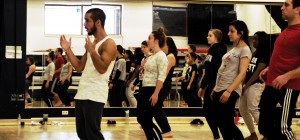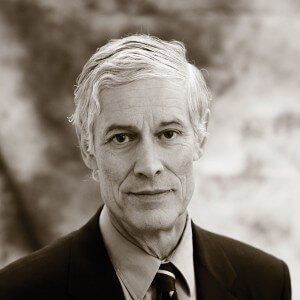Arts Impact in the Classroom
In life, there are traditions and tokens that people pass on to one another. Sometimes these heirlooms are treasured material objects, and sometimes they are intangibly powerful connections, like the love of music that Purdue Professor Otto Doering gained from his mother and uncle.
Not professionally but consistently, Doering’s mother played the piano, and his uncle ensured an education in New York City jazz when he was growing up in the 1950s. What developed was an appreciation and affection for many types of music he might not have otherwise considered.
That love of music is a lineage Doering, a professor in Purdue’s Department of Agricultural Economics, has kept strong among his students. For nearly 30 years, Doering has provided subsidized tickets for undergraduate and graduate students to attend music events presented by Purdue Convocations.
“I think the key thing is that you have to push,” Doering says, adding that he thinks more professors should engage in this activity. “It is something that a student—especially a student who may not have been exposed to very much music or music of different kinds—is not likely to voluntarily attend. The instructor or professor who is interested, I think, needs to look the student in the eye and say, ‘Look, this is a special opportunity. You really need to do this sort of thing. I’ll help you get tickets or whatever else. This is something you need to experience.’ My impression is that we don’t have many people who do this.”
It started when Don Seybold, former Assistant Director of Purdue Convocations, started booking the Jazz Set (originally known as the American Music Album). Recalling the rush he felt at experiencing jazz as a young man and recognizing the high quality of artists brought to campus, Doering began encouraging his students to get out there and try a jazz concert. For many, it was the first time they had even heard jazz. He would buy the tickets, and asked Seybold to recognize the attendance of his Ag Econ 250 students from the stage so they would feel good about being there, “courtesy of Professor Anonymous.” Given his past courseload, Doering used to gift undergraduate students with tickets; with the classes he teaches today, Doering more regularly extends his generosity to graduate students.
The time spent is not in educating students in the arts, Doering says, but to get them to try something new and to see if they like it.
“Culturally speaking, this is a broadening skill, and I feel especially strongly about this given that we now have been reduced to 120 credit hours (for graduation),” Doering says. “The result is that students take fewer electives and have fewer chances to really get involved in the social sciences, humanities, and the arts. That translates to reduced opportunities for these students—these leaders of tomorrow—to broaden themselves and be both better and more creative citizens.”
For Doering, playing an instrument, singing, or even just attending a performance fits the bill for experiential learning.
“I think it enriches your own life if the arts are a part of your background,” he says. “It certainly gives you a breadth of interest that not only stimulates you personally but also gets you in touch with other things, other activities, other people. I just think it is a great mistake if you have the opportunity to do these things and don’t take advantage of it. Unless they take a job in a major metropolitan city, students may never have events so easily in reach again, and at such reasonable cost.”

Diego Alves Dos Santos of Compagnie Käfig conducts a master class in hip-hop for Purdue Dance students
In an increasingly interconnected world—where we can retrieve almost anything we want electronically and in our pocket—Doering still believes there is no substitute for the concrete connections that can be made between artist and audience in a live setting.
“Even if you’re seated and enjoying the artistry, you’re taking ownership of a unique experience,” Doering says. “There’s a direct, participatory interplay between you and the artist on stage. You’re actively engaged in that performance, and no one can take that from you.”
It’s a powerful ideology imparted upon Doering by his mother and his uncle—one he passes along to his students…and that he hopes his Purdue peers will consider doing for others.
by Laura Clavio, Assistant Director
